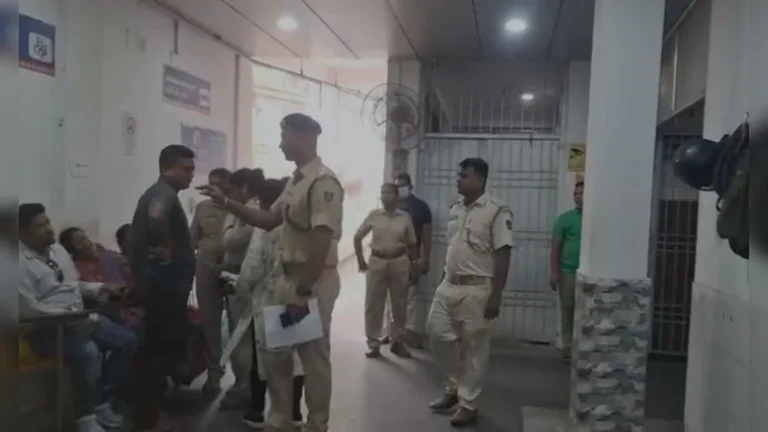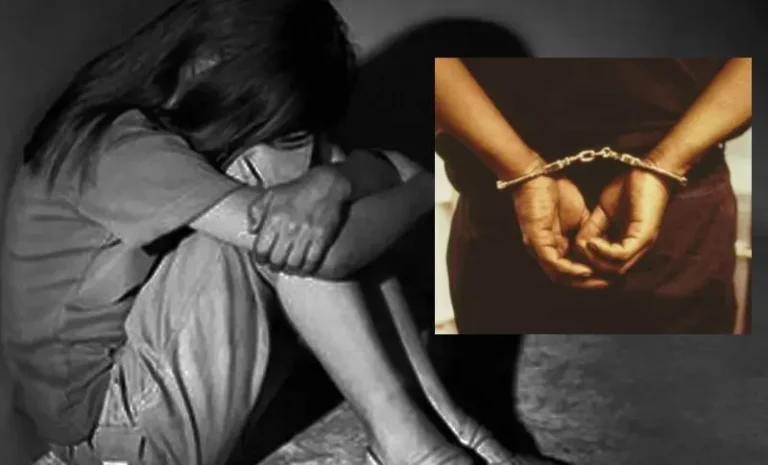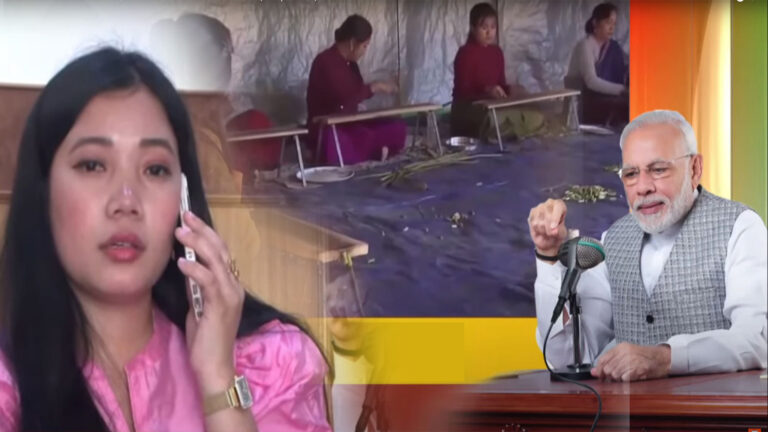Manipur Woman Dies by Suicide in Relief Camp: A Crisis Unfolding in the Heart of Conflict
Summary of the News Article:
A tragic incident has unfolded in Manipur, where a woman, currently staying in a relief camp, tragically took her own life. The cause behind this suicide has yet to be fully understood, but it brings attention to the mental health challenges faced by many in the state, especially those living in such camps. This event is part of the broader struggles faced by communities displaced by ongoing conflict and social unrest in the region.
Introduction: A Tragic Loss in Manipur
In an unfortunate turn of events, a woman residing in a relief camp in Manipur died by suicide. This incident highlights the harsh realities faced by the residents of these camps, who, while seeking refuge from the violence that has plagued the region, also grapple with their own mental and emotional struggles.
This event has left many questioning the underlying causes of the tragedy, as well as the broader implications of the ongoing conflict in the region. But before we delve into that, let’s take a closer look at what the incident means for the individuals affected, and for the state as a whole.
What Happened in the Relief Camp?
The details of the incident are still being pieced together, but one thing is certain: the tragic death of this woman is more than just a personal loss—it’s a reflection of the deep, systemic challenges facing the displaced populations of Manipur.
Relief camps, designed to provide shelter and safety, often become places where trauma is amplified. The emotional scars of displacement, fear, and uncertainty can weigh heavily on those living in such conditions. With limited access to mental health care and resources, it’s no surprise that these individuals are often pushed to their breaking point.
It’s important to understand that suicide in such contexts doesn’t just stem from one event—it’s the result of a complex web of psychological, social, and economic factors. Displacement, a loss of community and identity, and the trauma of violence contribute significantly to the mental health struggles faced by many in these camps.
The Mental Health Crisis: A Silent Struggle
When we think of relief camps, we often imagine physical shelters—tents or temporary structures meant to protect people from the elements. However, mental and emotional shelters are just as important, if not more so, when it comes to dealing with displacement.
Mental health issues in conflict zones like Manipur are often overlooked. Survivors of violence may be dealing with post-traumatic stress disorder (PTSD), anxiety, and depression, but these conditions are rarely addressed due to a lack of infrastructure and support systems.
Consider this: A woman, already vulnerable from losing her home, community, and perhaps even loved ones, now finds herself in an unfamiliar camp where resources are scarce, and uncertainty looms large. Without access to proper mental health care, she is left to navigate her grief, fear, and isolation on her own.
For many, the emotional toll becomes too much to bear.
The Broader Implications: What Does This Tragedy Reveal?
The suicide of this woman sheds light on a much larger issue in Manipur and similar conflict-affected areas: the urgent need for better mental health support systems. While physical aid is vital, emotional and psychological care is just as crucial in helping individuals heal.
Displaced individuals often live in constant fear of their safety. This ongoing stress can lead to a variety of mental health problems, including suicidal thoughts. The woman’s death should serve as a wake-up call for authorities, humanitarian organizations, and society as a whole to address these needs head-on.
But this crisis goes beyond just the people in the relief camps. It reflects the broader impact of conflict on communities as a whole. The emotional toll of living through violence, loss, and displacement can stretch far beyond the immediate aftermath of a conflict.
The Role of Relief Camps: Are They Enough?
Relief camps are meant to offer sanctuary to those displaced by conflict. However, as seen in Manipur, they are not always equipped to handle the complexities of long-term displacement. Often, these camps are set up to address immediate needs—food, shelter, and security—but they fail to provide long-term solutions.
While physical survival is a priority, the mental and emotional survival of individuals living in these camps should not be neglected. People in these camps are not just survivors of a disaster—they are victims of an ongoing crisis that affects their sense of identity, belonging, and hope for the future.
In the case of the woman’s suicide, there is no escaping the reality that the relief camp failed to provide the support she needed to cope with her circumstances. It’s crucial that we rethink how we approach refugee and relief efforts in conflict zones.
Mental Health Support in Crisis Situations: A Call for Action
Addressing the mental health crisis in relief camps requires immediate action from both local authorities and international aid organizations. The tragedy in Manipur serves as a stark reminder that addressing mental health in crisis situations is not just important—it is essential.
Here are a few steps that can make a difference:
- Increased mental health resources: Providing access to counselors, therapists, and mental health professionals who can help individuals process their trauma.
- Community-based support systems: Empowering survivors to form support groups where they can share their experiences and help one another.
- Awareness and education: Teaching people about the signs of mental distress and offering coping mechanisms can help prevent further tragedies.
Additionally, involving local communities in the process of providing mental health care can create more effective solutions. When people feel heard and understood, they are more likely to seek help and begin the healing process.
What Can Be Done to Prevent More Tragedies?
In light of this heartbreaking incident, there are several ways forward:
- Strengthen mental health infrastructure: Increasing the number of mental health professionals in conflict zones is essential. This can include training local individuals to recognize signs of distress and provide initial support.
- Improve access to psychological services: Whether through mobile units or telemedicine, ensuring that individuals in relief camps can access timely and effective mental health care is critical.
- Public campaigns: Governments and organizations can create awareness campaigns that break the stigma surrounding mental health, encouraging people to speak up and seek help.
- Collaboration with NGOs: NGOs can play a significant role in providing mental health care and other forms of psychological support to those in need.
Conclusion: A Call for Compassionate Action
The suicide of this woman in a relief camp is a tragic reminder of the human toll of displacement and conflict. It is also a call to action for all of us to take the mental health of displaced persons seriously. Only by providing comprehensive support—physically, emotionally, and psychologically—can we hope to heal the wounds left by conflict.
Manipur’s tragedy is not unique. Around the world, communities in conflict zones face similar struggles. It is time we shift our focus from mere survival to the well-being of every individual. For the survivors in these camps, they deserve more than just a roof over their heads—they deserve to have their mental health needs addressed as well.
FAQs
1. What led to the woman’s death in the relief camp?
The cause of the woman’s death was suicide, a tragic outcome likely influenced by the emotional and psychological toll of living in a relief camp amidst ongoing conflict.
2. How do relief camps typically affect mental health?
Relief camps often fail to address the psychological needs of displaced individuals, leaving many vulnerable to depression, anxiety, and trauma, which can sometimes lead to tragic events like suicides.
3. What is the role of mental health support in conflict zones?
Mental health support is crucial in helping individuals cope with the trauma of violence and displacement. Without it, people may suffer from long-term psychological effects that hinder their recovery.
4. What can be done to prevent such tragedies?
Increasing access to mental health professionals, creating support systems, and raising awareness about the importance of mental health care can help prevent tragedies like this one.
5. Are there any initiatives to improve mental health care in relief camps?
Yes, NGOs and local governments are beginning to focus on mental health, offering services like counseling and therapy to individuals affected by displacement.



